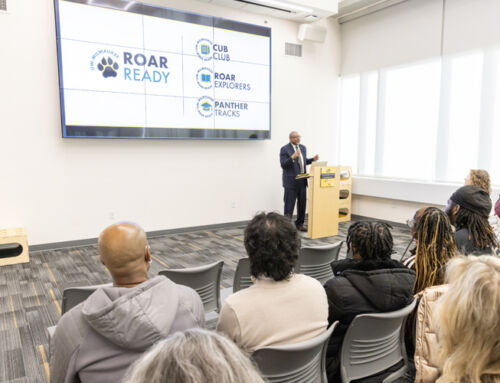
That hesitation exists because employers feel recent graduates lack real-world experience, teamwork skills and business etiquette. Companies also don’t want to spend the money required to train college graduates, especially if they’re missing skills vital for the workforce.
NACE and Hult International Business School’s survey rank skills that employers see as most important when thinking about hiring an employee. Communication is the top priority, followed by other skills such as critical thinking, collaboration and a willingness to learn.
According to Hult International Business School, only 24% of recent grads say they have all the skills they need for their job. 77% of students say they learned more during their first six months in the workforce than they did during their four years in college.
How are college graduates feeling as they enter the workforce?
Amaya Ibanez-Baldor graduated from Marquette University in December with a degree in civil engineering. She began her job search in the summer of 2024 wanting to ensure she had employment before graduation. She used Handshake, a job site that posts mainly entry-level positions, and networked with professionals.
“Ever since I was a freshman, I was always trying to get my name out there and make connections,” she said, pointing out that she networked through the American Society of Civil Engineers and joining an engineering sorority.
She looked for jobs in Milwaukee and Spain, applying for three she thought attainable, but also 30 others that were more of a “long shot” through LinkedIn. For many of her applications, she heard back within two or three months, although some companies never got back to her at all.
During her time at Marquette, Ibanez-Baldor interned with GRAEF for multiple years, even taking a year off from classes after her junior year to do a co-op where she worked with them full-time. She was relieved she received an offer from the civil engineering firm for a full-time opportunity.
“It’s a little bit frightening that there are more expectations, but at the same time, I thrive in that kind of environment,” she says.
Looking for a role in education
Elisabeth Adam is graduating from Grand Canyon University in May with a degree in music education, aspiring to teach music to public school students. In the fall, she will be a student teacher in elementary and middle schools before searching for teaching jobs in Milwaukee.
Adam is taking classes that guide her through the process of searching for jobs. Assignments include finding 20 jobs, going over resumes and cover letters and participating in a mock interview. Another music teacher introduced Adam to WECAN, or Wisconsin Education Career Access Network, a website where aspiring teachers can search for open teaching positions in Wisconsin, sorted by positions, employers or region.
“That’s been the most helpful resource to find jobs,” Adam says.
She hasn’t had trouble finding open positions, especially in Milwaukee Public Schools. Most open jobs are within elementary schools, since Adam says many recent graduates would rather use their training in music theory and how the voice works to teach older students.
Adam thinks it has been most valuable for her to observe and teach her own lessons in preparing to be a teacher. This past summer, she interned with the Kohl’s Childcare Development Center, where she taught music lessons to classrooms of children ranging from preschool through fifth grade.
“This summer I had a lot of room to play around with ideas … The experience of it is the best teacher to learn what works and what doesn’t,” she says.
Changing course
Reilly Roman is a music major with elective studies in pre-health sciences at Wheaton College. After interning with speech and occupational therapists in the special education program at a school in the Dominican Republic, her aspirations shifted away from medical or PA school, at least temporarily.
Roman recently accepted a position as a speech therapy practice associate at Chicago Speech Therapy Academy in Chicago.
“Speech therapy is a beautiful intersection of healthcare and education, and with my knowledge of the voice from studying music, it just intersected super well. I love kids and all my experience with jobs has been with kids,” she said.
She initially began looking at rehab assistant positions at Chicago hospitals around Christmas. Rather than using job boards, Roman used Google to search for speech therapy practices in Chicago, and applied for positions directly from their website.
“The hard part about really big hospitals is that they electronically look over applications, so they don’t tend to get back to you unless there’s a huge need and you’re the perfect person,” she said.
Roman still hasn’t heard anything from one of the children’s hospitals she applied to.
After applying to Chicago Speech Therapy, Roman had a phone interview within two weeks. Following an in-person interview about two months later, she received an offer at the end of February.
Roman considers her most valuable experience to be her role as a direct support professional for two six-year-old boys with autism and ADHD over the summer. Her job was to aid speech and occupational therapists in their individual service plan for the boys, which lines up with what she’ll be doing at the clinic.
“Since a lot of my work has been with kids, minus the healthcare element of the job, I feel prepared to enter as a clinic assistant because there’s already a lot of learning built into the job,” she says.
Accepting a job early in the semester has given Roman some doubts about whether or not she should have waited for the “perfect” role. Ever since visiting the clinic and meeting the staff, though, Roman is excited about the opportunity to learn alongside Speech Therapists before returning to school in the future.
Franklin McMahan is an international relations and music major. He began the semester searching for music teaching positions in Spanish-speaking countries, and applied to a couple positions in the Dominican Republic after seeing them on Idealist. He struggled to hear back from one of the schools, and decided to pursue experience related to refugees and law.
“I don’t want to practice law in a courtroom. I want to do something that I can help people, especially refugees, in a very practical way. Having a legal background is one way I can do that,” he says.
He is now in the interview process with the Samaritan’s Purse Legal Office in North Carolina. After applying, he had a one-way interview within three days.
McMahan applied for an internship with Samaritan’s Purse last year and was one of the final candidates. He hopes that they will appreciate that he is “persistent in wanting to work there.”
McMahan says he feels prepared for the workforce. Being a student has equipped him to communicate well by writing clearly and concisely. His internships have given him “more practical, soft skills.”
Additionally, he has also interned with a state senator, where he communicated with constituents both through email and over the phone. He sees this experience as being particularly helpful in an entry-level role.
Patience is a virtue
Steven Preston is a philosophy and classical languages major. After he graduates in May, he hoped to be either a Latin teacher at a classical school or an editor at a publishing company.
He applied to two positions at a publishing house, one position at a church and one position with a ministry he interned with. He didn’t hear from the publishing house or his church before learning that the positions had been filled.
Preston used Indeed and career fairs as resources in his job search, in addition to looking at classical schools’ websites in the suburbs of Chicago. He applied for a position as a Latin teacher at a classical school in Grayslake, Ill., and heard back within three days for an initial interview. Since then, he has visited the school, taught a lesson and anticipates another interview and lesson soon.
“They were super responsive and continue to be super responsive,” he says.
Preston believes his work as a teacher’s assistant has been very helpful in preparing him for this next role, as he has experience with tasks such as grading papers and quizzes. It has also shown him that he loves to teach.
“I sort of feel like all I’ve been doing the past four years has been reading Latin and Greek or talking about ancient society or reading literature … This I feel on the right track for,” he says.




